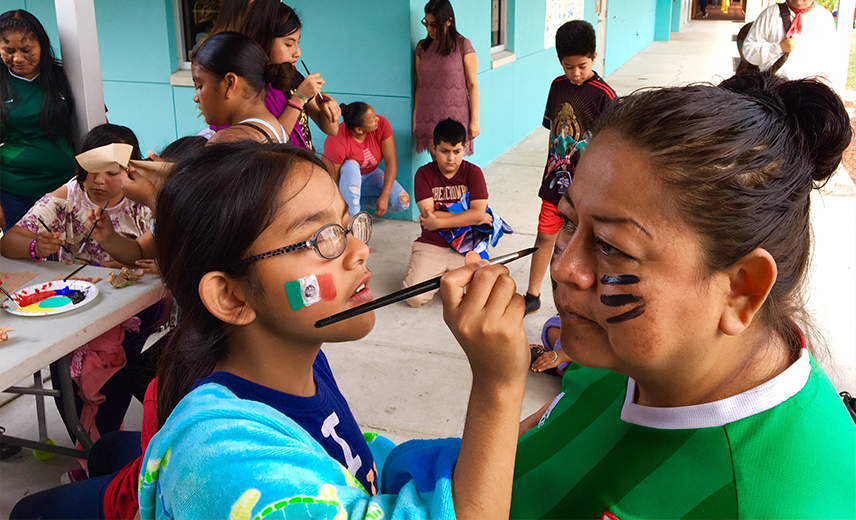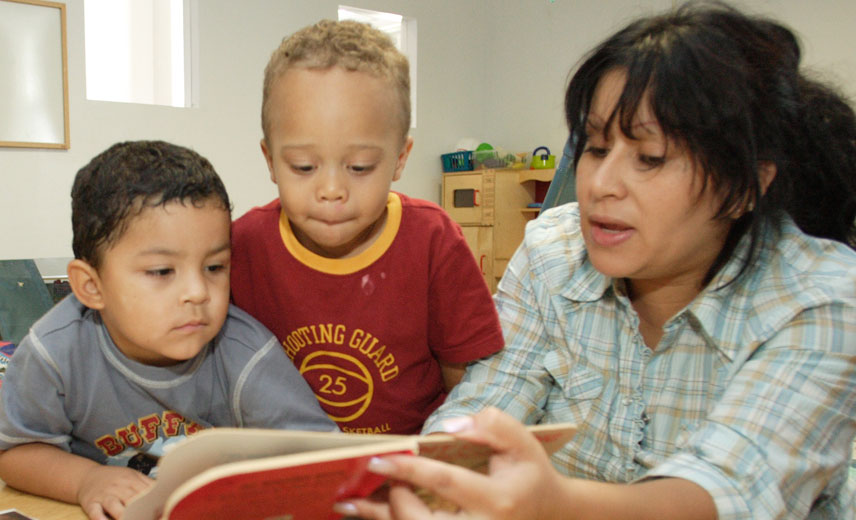How a K-8 Charter School of UnidosUS’s Florida Affiliate RCMA Helps Children of Migrant Workers Prepare for High School, College, and Life

On a hot, steamy day in May, students at UnidosUS Affiliate Redlands Christian Migrant Association Wimauma Leadership Academy on Florida’s Gulf Coast gathered on campus with their parents for a Mexican cultural celebration. The day’s humidity did not stop them from painting Mexican and American flags on each other’s faces, or from marching around the schoolyard with handmade banners, masks, and instruments performing traditional Mexican music and shouting “Viva Mexico!”
It was a chance for these predominately migrant farmworker families to take a break from struggling to put food on the table and celebrate all who they are in a state where their community is often overshadowed by more historic Florida Latino populations such as Cubans, Venezuelans, and Puerto Ricans. It was a chance to play and to learn about how the school program could lead to a better, more integrated life for their children. And on this day, there was another cause for celebration. Eighth grade graduation was just around the corner and 10 of this year’s 34 graduates would be getting full-ride scholarships to Cristo Rey, a private Catholic high school in Tampa which exposes underprivileged youth to the professional world by giving them one-day-a-week, accredited internships at area businesses. Additionally, each teen will have the opportunity to try out a different internship for each of their four years of high school.
But getting them this far was no easy task. All across the nation, data shows students are falling behind proficiency in math and reading even before they hit high school, and that’s especially true of Latino students. According to 2017 data for eighth graders gathered from the National Assessment of Educational Progress, just 20% of Latinos were proficient in reading, compared to 45% among Whites, and in math, just 20% of Latinos were proficient, compared to 44% of Whites.
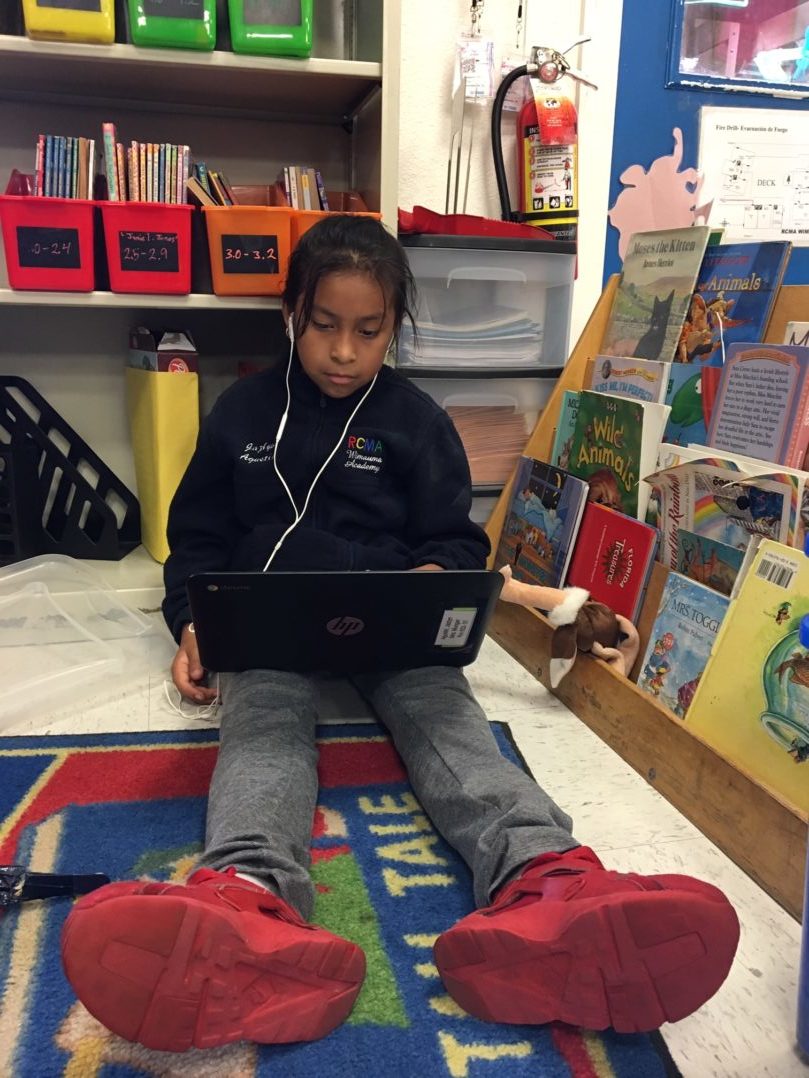
It’s easy to see how that could happen. Schools are overcrowded and underfunded, programs for English learners often fail to use best language acquisition practices, and in some cases, as is often the case among families in Wimauma, parents are either illiterate or don’t have the time and formal education to help tutor their children. Given this reality, UnidosUS’s Affiliate RCMA, the 2019 UnidosUS Affiliate Awardee for Advocacy, a network of Florida-based child care and education providers, has spent decades looking for ways to improve these outcomes. It began in the 1960s with a series of daycare centers for migrant families. There are now 70 such facilities across 21 counties in the state. In the late 1990s, RCMA began developing K-8 charter schools to better prepare students for high school.
“We’ve never had to institute a lottery system because we always had full classrooms with waiting lists,” says Haggett, whose Wimauma school takes about 38 kindergartners each year and gives priority, as written in their charter, to siblings of children already in the program.
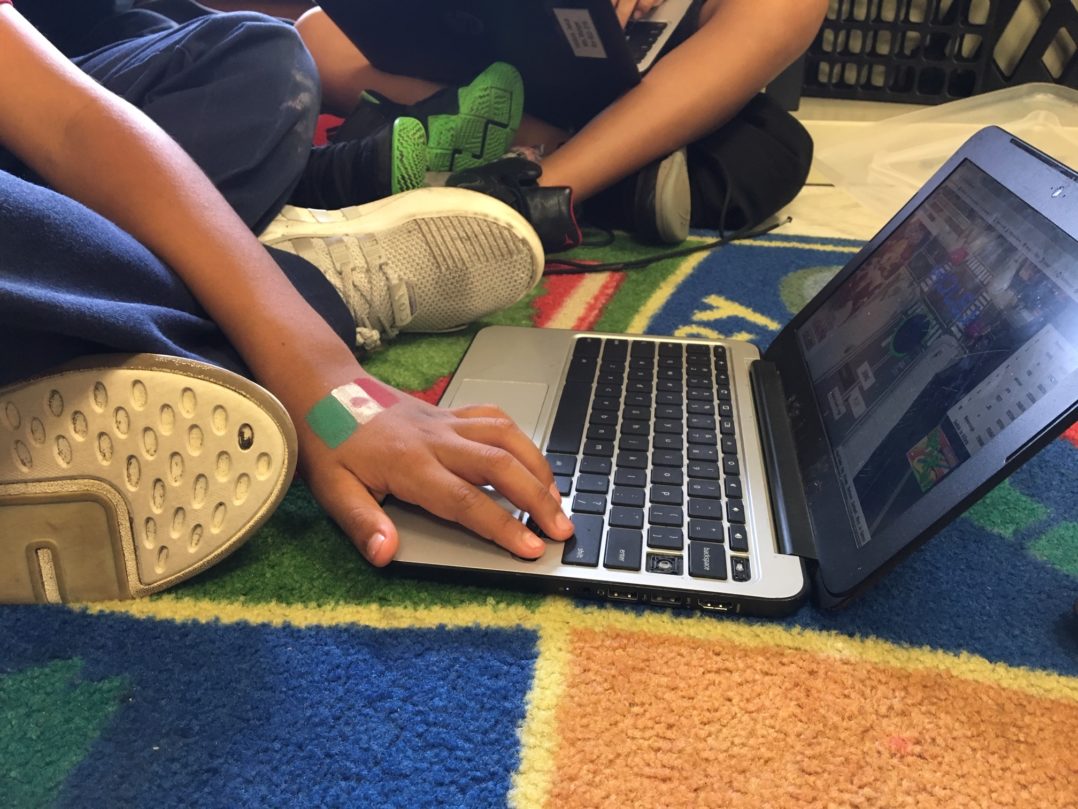
Today, RCMA Wimauma is 99% Latino and offers 100% of its students free and reduced lunch because their families are at poverty or sub-poverty level, so RCMA offers what it refers to as “wraparound” services to ensure kids stay in school and parents are active in their education.
Because transportation in rural communities is often limited, RCMA has its own bus system that drives out to some of the most remote parts of the state to pick kids up and drop them off. It also arranges rides and tries to provide for parents with court dates and other major appointments. This makes it easier to get parents interested in their parent engagement classes, as well as adult literacy programs. Finally, students receive low-cost health services and free dental cleanings through a partnership with the Suncoast Community Health Center and a grant from UnidosUS.
English Learners
English learners, Latino or not, are among the lowest-achieving cohorts of students in America’s classrooms precisely because this group has the added challenge of translating the information they receive in school. Data from the U.S. Department of Education shows that in Florida, only 62% of ELs graduate high school, compared to 82% among their non-EL peers.To improve these outcomes, UnidosUS has been pushing a bill in the Florida state legislature that would provide achievement assessments in students’ native languages so that state education agencies can gain a more meaningful read of the ELs’ knowledge of the subject matter. But RCMA’s charter schools are already a step beyond that.
One of their key academic components is its dual-language program, which can help boost achievement levels for all subject areas by allowing kids to think in their native language as they take on a second language. During kindergarten and first grade, the students spend half of their class time in English and half in Spanish. The program will move up a grade level each year until all grade levels K-5 are dual-language classrooms.
“Research shows that mastering all the letter names, sounds and phonics in your home language is most important before learning a second language,” explains RCMA Wimauma Charter School Principle Mark Haggett. “They need to learn English, but if they haven’t mastered their home language, there’s not that natural transfer.”
He cites the 2017 findings of a RAND Corporation study of English Learners in Portland, Oregon that showed ELs enrolled throughout elementary school in dual language programs were more likely than their peers to be English proficient upon entering 6th grade. With that in mind, RCMA continues some level of dual language instruction up through the fifth grade. “By the time they reach middle school, the goal is for them to be fully biliterate and bicultural,” he says.
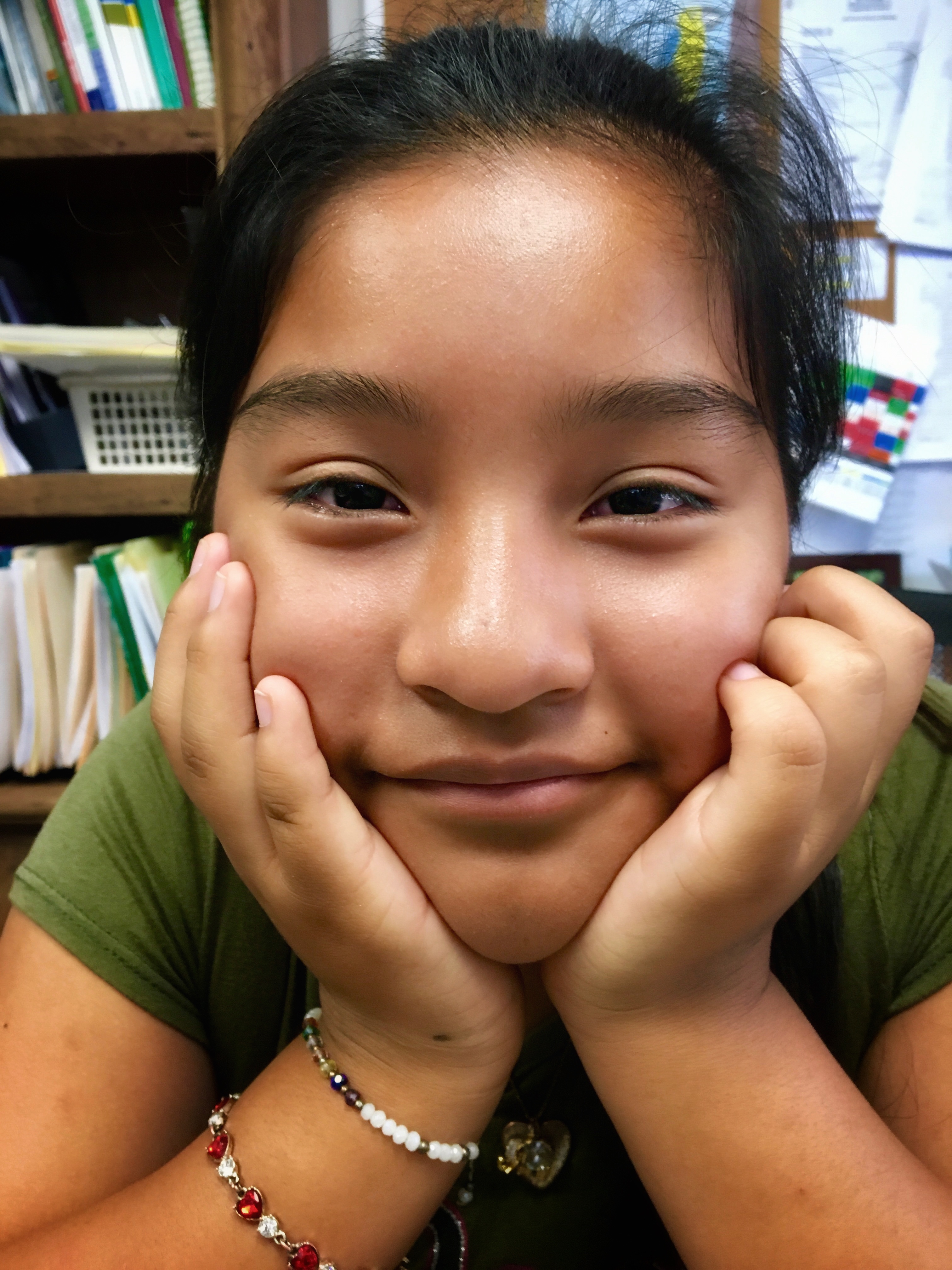
Many RCMA students come from indigenous families who speak a third language at home such as Mixteco. This means that one or both parents are probably speaking to their children in a mix of Spanish and indigenous words.
Romalta Santos Vazquez, 14, is one of those cases. Her mother speaks to her daughter in Mixteco and her daughter answers her in Spanish. They more or less get each other, but Santos Vazquez says her mom’s inability to read or write makes it impossible to see Mixteco in the written form.
“I do understand it, and I try to talk it, but not that much. I want to learn more, but I’d need it written on a piece of paper and the words translated for me in Spanish or English,” she says.
Culturally Relevant Instruction
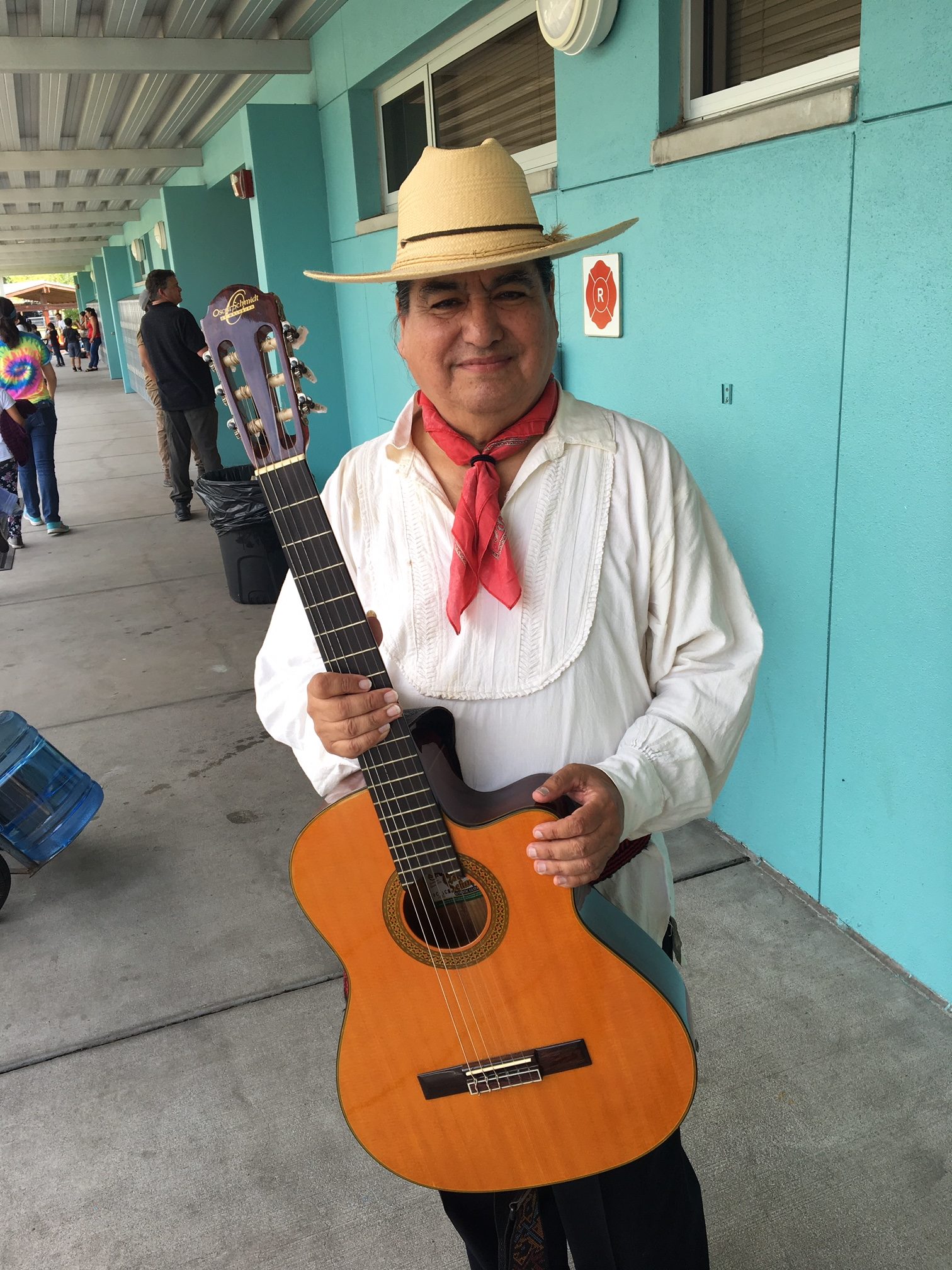
RCMA cultural affairs director David Peña Flor is working to address that by identifying all the indigenous Mesoamerican languages spoken in the communities RCMA works with. He also runs the adult literacy program so he tries to find reading materials in the parents’ native language to help them get up to speed. It’s a tremendous linguistic challenge, but he’s up for it, and he says introducing words and traditions through music, singing, and dance bolsters the students’ self-esteem, self-confidence, and critical thinking skills.
“The goal is for the children to have the chance to feel proud of their roots. Even though they were born here, on the outside they’ll always been seen as what they are, as Mexicans, as Hispanics or Latinos, so it’s important that they recover their identity through their language, the pride of belonging,” he says.
Santos Vazquez says learning to speak Mixteco could be beneficial to her home life and to a future career helping families like hers navigate the social and political intricacies of immigrant life in America.
She graduated from the RCMA Leadership Academy this spring and will now be attending Cristo Rey on the scholarship program with that goal in mind. And while Cristo Rey doesn’t offer a language program of that nature, she will gain other important professional knowledge to help her find out exactly what helping her community outreach could look like.
Professional Exposure
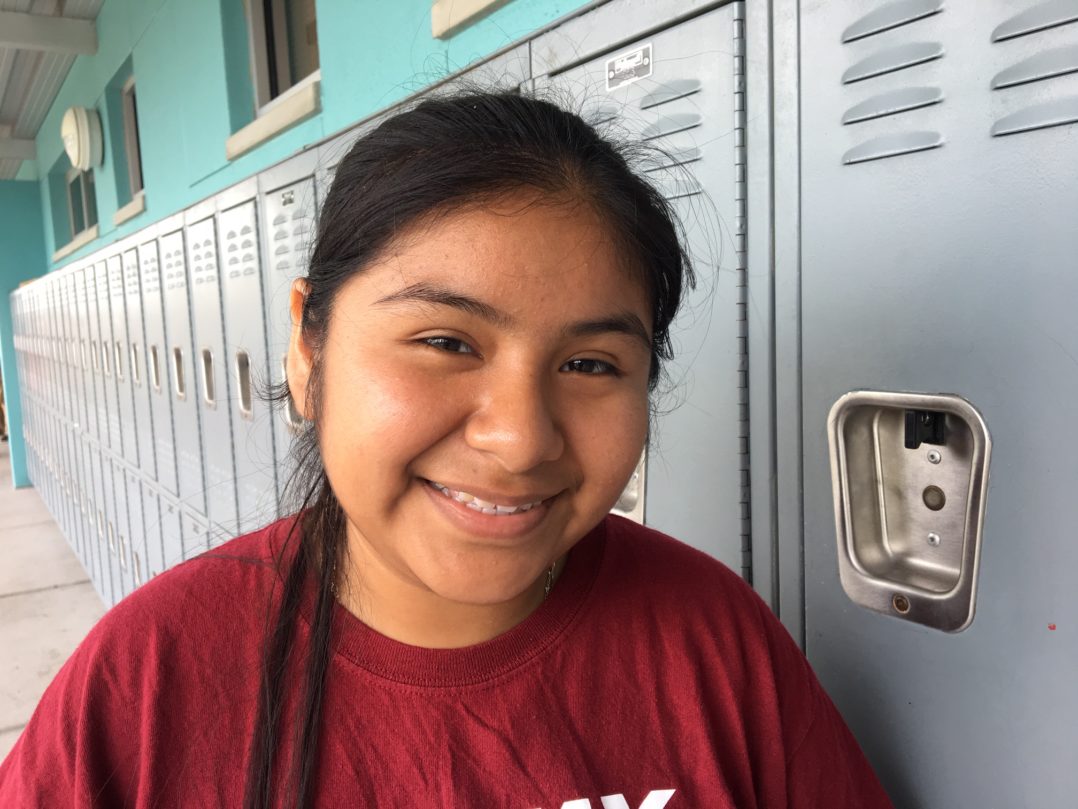
During the next four years, Santos Vazquez will not only be studying what she needs to be college ready, she’ll also have a chance to learn clerical, business, and people skills in places like hospitals, law offices, and financial institutions.
“I believe this program is important for their future in the workforce,” says Haggett, noting that most of their parents have never worked outside of the fields or on construction sites. “These students are developing skills for greeting people, looking them in the eye, shaking hands with someone, answering a phone, and transferring calls. Everyone should learn those skills.”
Haggett says he wants youth to feel prepared and confident of their options and career choices regardless of whether they pursue college.
“There are tech jobs, there are all kinds of vocational skills that these kids need to know for important jobs that pay well,” he says.
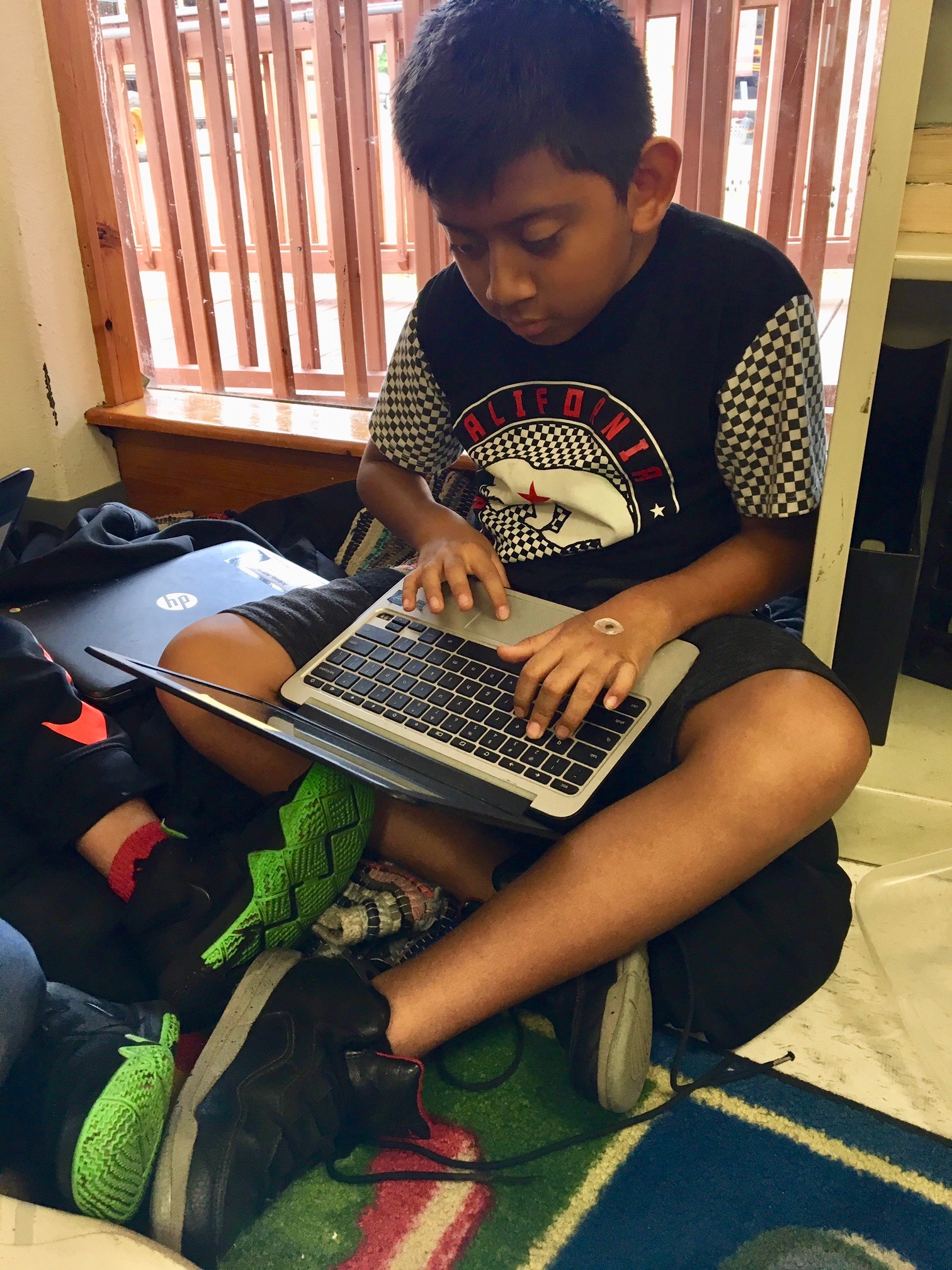
Rooted and Ready: A charter school of UnidosUS FL Affiliate RCMA gets children of migrant workers college and career-bound through dual language instruction, culturally relevant coursework, and a partnership with an internship-intensive high school. https://bit.ly/2Y6i2GN
That said, Cristo Rey Principle Matthew J. Torano, is passionate that the social justice mindset his Catholic institution provides will instill in his graduates the desire to push onward the goal of higher education. “Studies show that the best way to break the cycle of poverty, increase lifetime earnings of an individual and give them the highest probability of escaping the hardship of low income is to get to and through college,” he says. “Ultimately the hope of Cristo Rey Tampa is that our graduates return to the Tampa Bay Area service minded and join us in our cause to transform the city into a place where all are given an opportunity to succeed.”
He also touted the new partnership with RCMA Wimauma by adding “For us the most important value a partnering school can provide is that hard work, determination, and the desire to succeed are still qualities required for success at a high level.”
Coming Full Circle
Santos Vazquez says she feels ready to make the leap to a high school campus in the city and a wide range of business environments. She’s fully bilingual, her grades are good, and she says RCMA has helped her to feel good about her identity at a time of so much hostility toward immigrants.
“It makes me feel happy to show what I am, where I came from, and who I was raised by. I work harder,” she says.
She’s hopeful the education she’s gotten through RCMA and the partnership it’s forged with Cristo Rey will help her to dream and think pragmatically at the same time. At some point, whether through a program at RCMA or elsewhere, she says she’ll pick up those Mixteco skills and eventually, she’d like to practice law.
“There’s many people out there who speak the same language as my parents and there’s not many lawyers who can speak it,” she says.
“The academic success of Latino students is critical not only for their own well-being, but for America’s future. Bilingualism and multilingualism are not only culturally relevant, but in today’s global economy, language is a valuable asset that should be encouraged and celebrated to provide a competitive edge,” says Amalia Chamorro, Associate Director of Education Policy for UnidosUS. “This is why the work of organizations like RCMA to foster dual language proficiency in students like Romalta is so important.”

